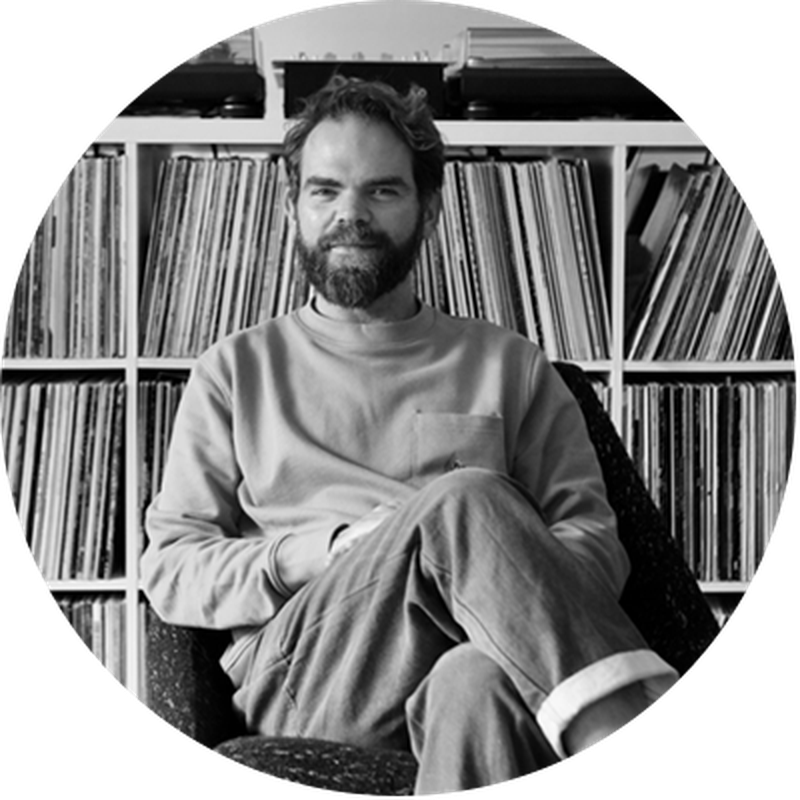How 5 Men In Wellness Look After Themselves
Even during the darkest of times, happiness can be found. You just need to look for it. In the last five years, I’ve undergone nine failed IVF cycles with my wife, while juggling two businesses. During this time, my mum passed away from a terminal illness, on the same day my dad underwent cancer surgery. After six cycles of IVF, we fell pregnant. Unfortunately, we had to terminate for medical reasons at 20 weeks in the middle of the pandemic, and my mother-in-law passed away 11 months later. With each challenge, I’ve become stronger and more resilient. I’ve learnt not to sweat the small stuff. When life feels all consuming, know it will pass eventually. Part of having strong mental health is the ability to understand stressors and stay calm in the moment with a clear perspective.
When life feels overwhelming, I take a few hours out. Prioritising mental health is essential to living a happy, content life. I’ve learnt it’s better to walk away from a stressful situation impacting your mental health rather than to dwell on it. Problems are creations of your own doing, and difficulties are situations you can’t avoid – understanding the difference between the two is hugely beneficial to improving mental wellbeing.
Not all men are open to talking about mental health. Since being honest about my struggles, I’ve found there are two reactions. Either people are supportive, empathetic and relate to what you’re going through, or they step away from the discomfort of the situation and quickly change the conversation. As much as there has been an emphasis on men’s mental health over the years, it’s still taboo.
Try to understand the emotions you are feeling. Could it be fear, anger or exhaustion? Men put ego first and use it as a mask. Consider whether it’s your ego talking or real emotion – it’ll help you better understand the challenges you’re facing. Take the time to evaluate a situation rather than letting it immediately stress you. Will it still be a problem tomorrow or next week? Take time to consider all the factors at play – what small changes could help improve the situation?
Visit TheInformal.co.uk
Mental strength is as important as physical. To me, good mental health means being mentally fit. It’s about being strong and resilient. Maintaining strong mental health is being able to avoid going ‘into your head’ and not spiral when you’re having a bad day. Learn to acknowledge when you are having a bad day and then implement your own coping strategies – awareness is key.
Meditation prevents me from slipping into negative thought patterns. It helps me take responsibility for my own wellbeing and keeps me on an even keel. I recommend Joe Dispenza’s meditations. I also practise regular mirror work – look in the mirror and tell yourself five things you love about yourself and five things you forgive yourself for. I find this to be a huge emotional release and it’s something I encourage my clients to do.
Exercise allows me to keep on top of ADHD. Exercise is a proven way to boost endorphins and dopamine – it helps me maintain optimal mental health and is the foundation for me to take on bigger challenges.
Don’t wait until you hit a low. As with a physical injury, if left unattended, the problem will only worsen. Keep on top of your mental fitness and keep tabs on how you feel daily. Take the time to explore what’s not working for you – look at areas you feel you may need to explore as part of your wellness journey. Perhaps it’s your fitness, nutrition, or even your financial wellness. Make the most of free advice available – not everyone has a Harley Street therapist on speed dial. The Samaritans is a great starting point and just sharing your feelings is a good place to start, even if you’re not looking for a definitive answer.
Visit LemonPT.com & follow @SuperSamFitness
Growing a business is an emotional rollercoaster. While I have developed a thick skin, I make a conscious effort to keep stress levels under control. Anxiety can be crippling and leads to a version of myself I dislike. I’ve found box breathing (Google it if you don’t know it) and reading in the morning (without reaching for my phone) to be game-changing. Putting thoughts to paper also helps and somehow removes life and work stresses from rattling in your head. Sharing my emotions more openly is a work in progress. The pressure to present a successful image can make finding safe spaces to express vulnerability challenging – I’m increasingly recognising I need to improve in this area.
A support network is everything. A friend’s battle with depression and a suicide attempt highlighted the significance of mental wellbeing for me. Fortunately, he’s now in a much better place, and I’m making small steps to prioritise my mental health. Find genuine friends you can be yourself with. Catch-ups don’t have to be weekly therapy sessions, but having people you can talk to about more than just the football is crucial. Seeking professional help is increasingly normalised, just like using a PT for your physical health. Why not trust a psychologist for your mental wellbeing?
Start by discovering what brings you joy. Whether it’s people, routines, workouts or brands – embrace laughter and good times. If you find it challenging to find joy in life, seek professional support – your mental wellbeing matters.
Visit Phizz.co
It’s okay to be selfish. The phrase ‘put on your own oxygen mask first’ has become so common among parents that it’s verging on clichéd, but it remains essential advice. You can’t care for others, including your family, if you aren’t caring for yourself. Over the years, I’ve come to view that what I once thought of as selfish is something far more important. At the same time, it’s okay to be vulnerable. We’ve been trained by society to see vulnerability as weakness, which means we bottle up our emotions and struggles. This is why I started The New Fatherhood – I wanted to break out of that mindset and provide a safe space for other dads to do the same.
A low dopamine morning has been transformative. Sunlight before screen light, meditation and journaling all feature in my morning routine. I also live in Barcelona, so heading down to the beach early to watch the sun come up and feel the sand between my toes is grounding.
Opening up is key. But so many men don’t feel they have someone they can do that with. A 2020 study said that 24% of men in the UK felt they had no-one they could confide in. I started The New Fatherhood, a weekly newsletter about what it means to be a dad today, to share my own mental health struggles. But it has become so much more – thousands of dads across the world are all supporting each other. It’s a strange paradox: sometimes it’s easier opening up with someone you’ve never actually met, but that you can feel confident is coming from a place of care and support.
Yoga helped me through a tough time. We know about the positive effects exercise has on our physical body, but men are slowly catching up to how powerful it can be for the mind. A regular yoga practice helped when I was recovering from an episode of paternal prenatal depression. It helped me get centred, be present in the moment and in my body. I still practise regularly.
Start by talking to other men in your life. If you don’t have guys you can open up to, seek spaces online where you feel encouraged and included. And don’t struggle in silence until you hit some imagined ‘bar’. Most likely, by the time you feel you’ve hit that bar, you’re probably weeks or months beyond it. Don’t be afraid to seek help from mental health professionals – talking therapy was a huge part of my recovery.
Visit TheNewFatherhood.com
It’s okay to be messy. But it’s important to acknowledge how you feel – this is a big step in improving your mental health. Sharing your emotions with others is both powerful and brave. Avoiding your feelings is never a good idea – they’ll only eat away at you over time. If you find talking hard, consider texting-based therapy, phone or Zoom sessions. It can also help to join online support groups – you’ll soon realise you’re not alone. Life can be tough and there’s a lot we don’t understand about ourselves, but support is available, and things will improve with time and awareness. Good mental health is being honest with yourself and your emotions.
Getting to know your triggers is important. Taking the time to notice what’s going on for you and stopping to choose how to respond is a fantastic skill, but one that needs to be learnt and practised. Look back at a recent time you were struggling and think about what triggered you. What thoughts flashed through your mind and how did you react? When you notice this trigger again, what can you do differently? It can help to have a stock response: ‘Can I just take a moment?’ or ‘Let me think about this and I’ll get back to you once I’ve collected my thoughts and feelings.’ Go for a walk, think about it and then respond.
A big part of my mental health journey has been learning to say no. I also set more boundaries around my time. I was in therapy once a week for around eight years. I finished long-term therapy five years ago, and now have a coach for work and lifestyle who I check in with regularly. For me, exercise is important – I try to get to the gym before work a couple of times a week or do a 5k around Peckham Rye. I meditate for a few minutes throughout the day, too. Learning how to keep your nervous system in check is a massive help.
DISCLAIMER: We endeavour to always credit the correct original source of every image we use. If you think a credit may be incorrect, please contact us at [email protected].







